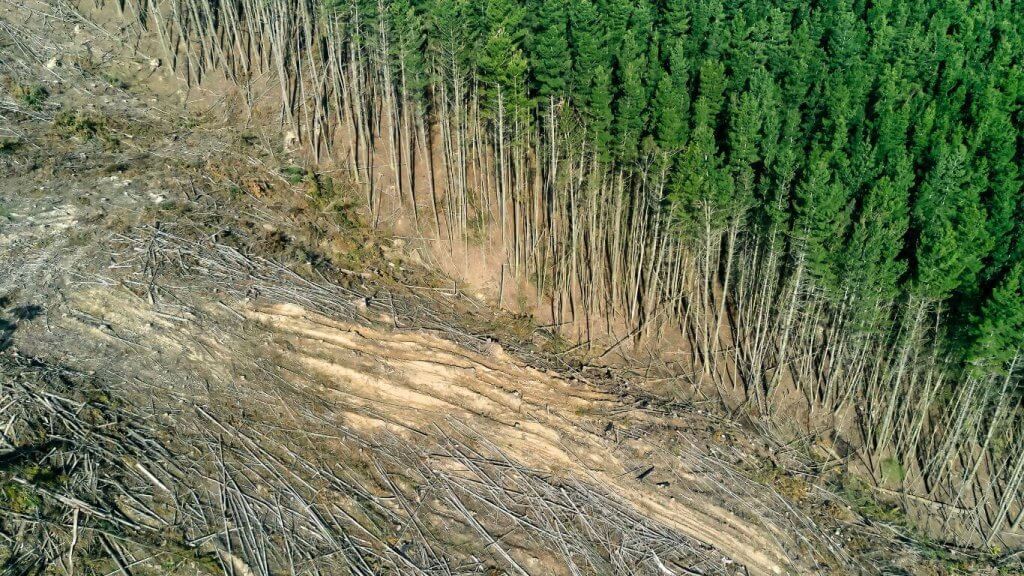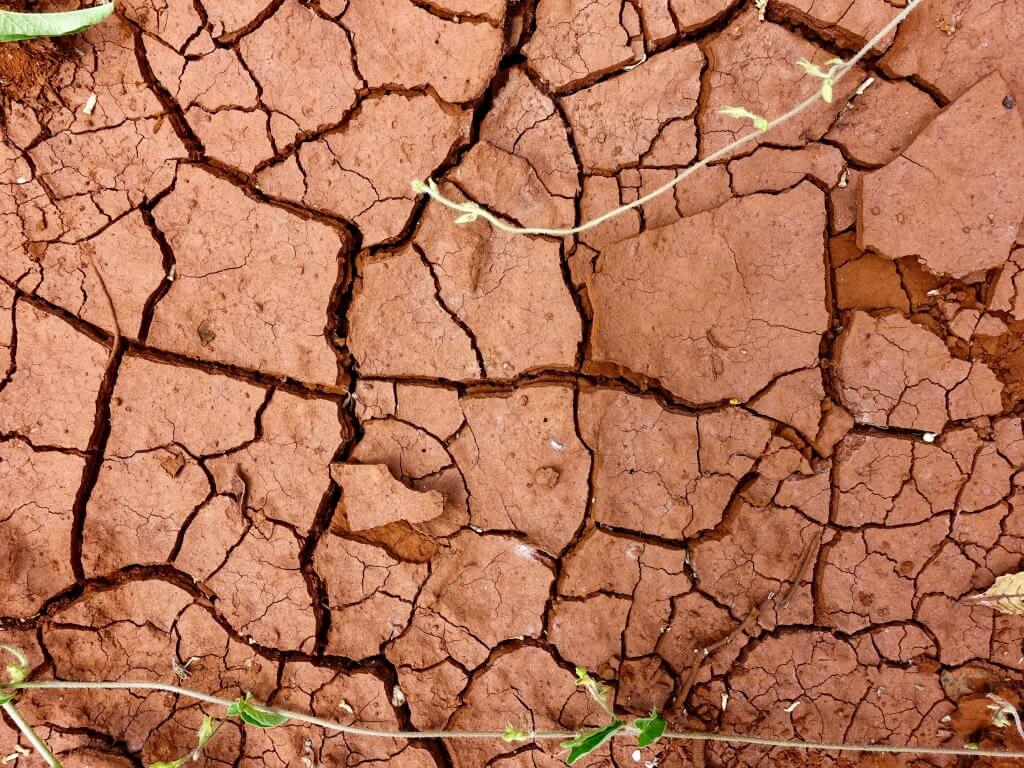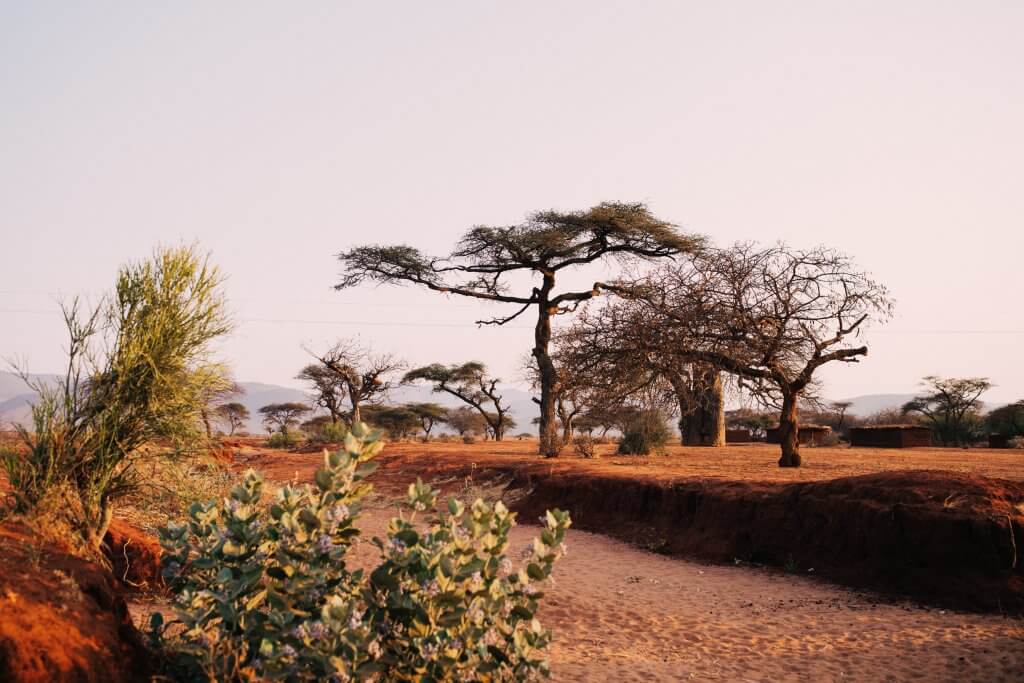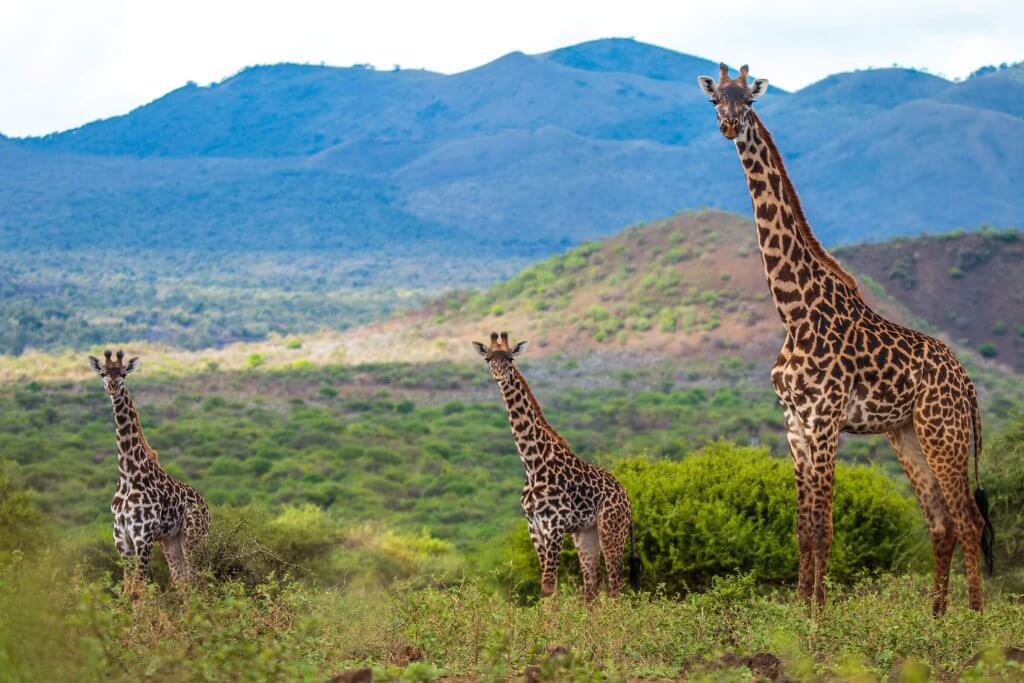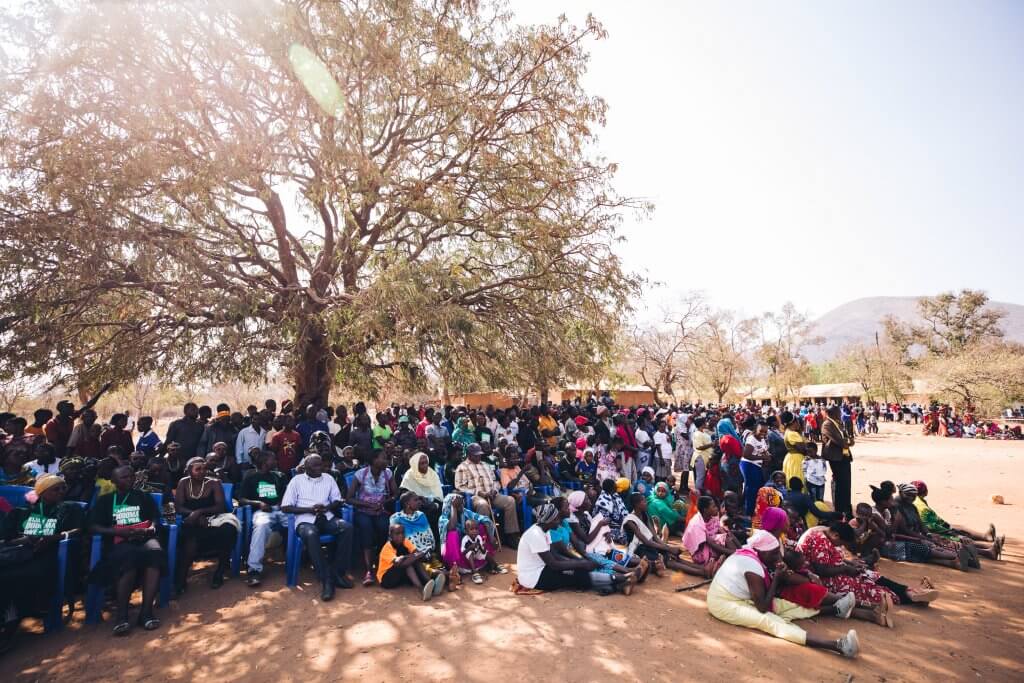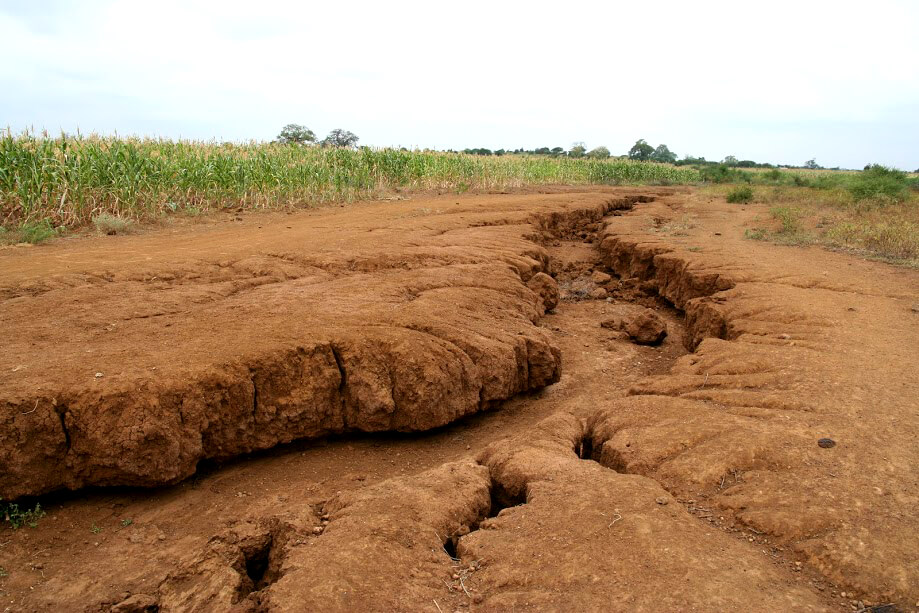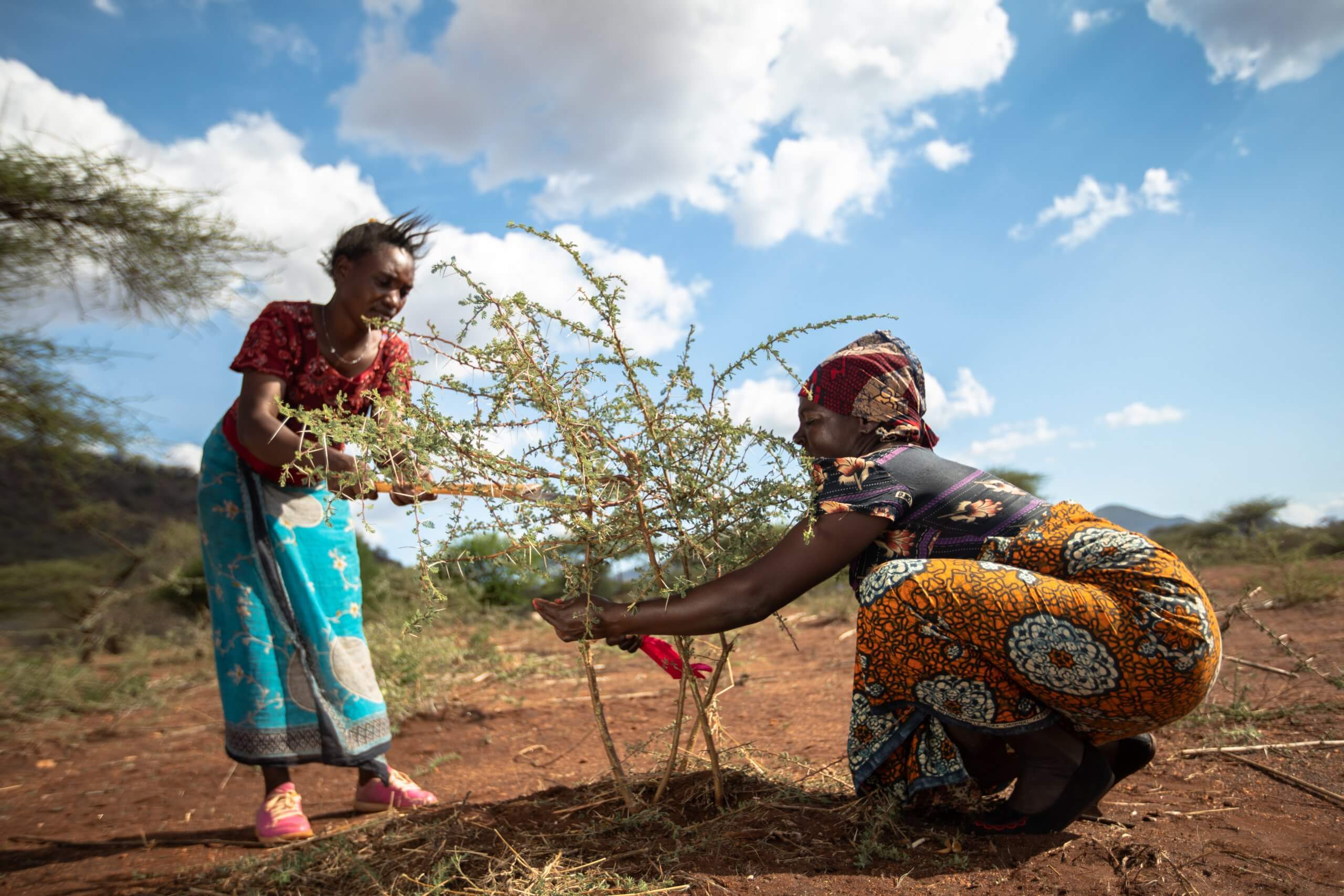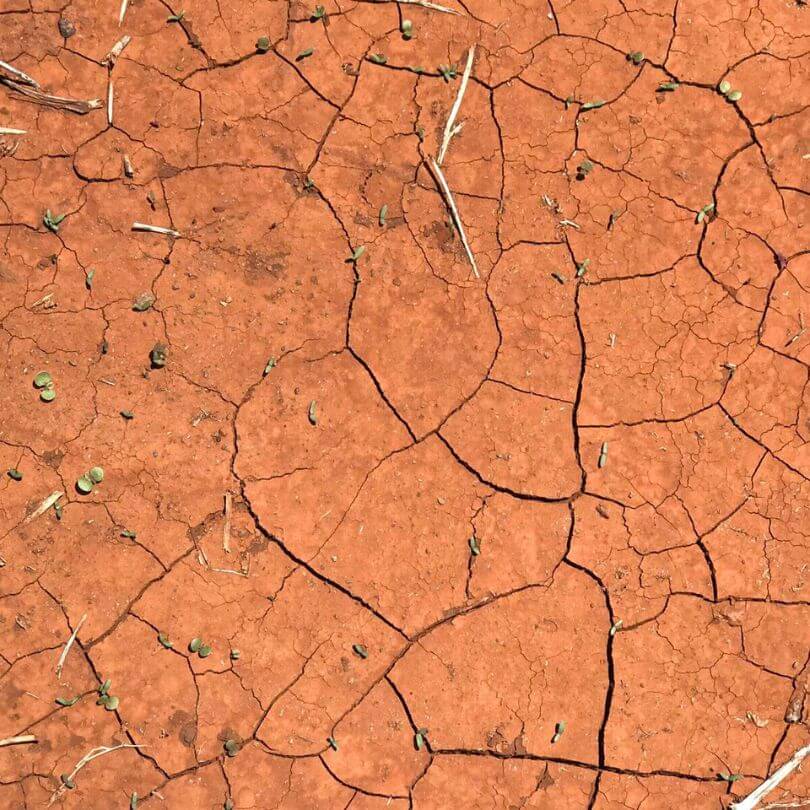
What is erosion? And how do drought and erosion affect one another?
Global challenge
Deforestation and tree losses on savannah & farmland are a worldwide problem. Yearly, 10 million hectares of forests are lost worldwide. What causes this deforestation and how can we reverse it?
Deforestation is the process of cutting down forests after which the land is used for non-forest purposes.
Forests cover 31% (4.06 billion hectares) of the earth’s land. However, due to deforestation, this number is rapidly decreasing. It is estimated that yearly 10 million hectares of forests are lost, from which 3.9 million hectares in Africa.
Not only in forests trees are felled at an accelerating rate, also on savannah and farmlands the loss of trees is significant.
Deforestation and tree loss are mainly caused by human activities. Trees are cut down to make space for agriculture or livestock grazing, the mining and drilling industries or are lost due to other forestry practices. The loss of trees can also be caused by natural processes such as wildfires. Due to global warming this natural way of deforestation increased rapidly over the past years.
Trees take up CO₂ from the air and lock the carbon into their wood.
Logging and burning trees stop the intake of CO₂ and release it back into the atmosphere, accelerating global warming.
Deforestation and the losses of trees on savannah and farmland also lead to a decrease in biodiversity.
Forests are home to a great number of living species, which cannot survive without the presence of trees. Also on Savannah’s and farmlands, trees are important for many living organisms.
Not only plants and animals are depending on the presence of trees.
Farmers for example, also depend on the benefits of trees: The shadow of trees prevents evaporation of water from the soil, increasing the water availability for crops on farmland. The shadow also protects the crops from burning in the sun.
The root system of the trees prevents erosion of fertile soil.
Soil erosion is one of the most serious adverse effects of cutting trees and leads to severe land degradation resulting in open and dry areas.
There are several ways to reverse deforestation and the loss of trees on savannah and farmland. One way is to protect the forests and trees which are still present. By creating conservation areas, the trees are protected from logging practices and other human activities causing the loss of trees.
But, protecting the trees is not enough. To bring back the balance on earth, it is necessary to bring back the trees which were once present. By planting new trees, also called reforestation, forests can be restored. Another way is to regenerate the trees which were once present. This is exactly what we are doing in our project in Dodoma, Tanzania. With help of a technique called Farmer Managed Natural Regeneration the farmers bring back trees on their own lands, increasing the tree cover.
And how does Justdiggit help to fight CO2 emissions and cool down the planet?
Justdiggit is a Dutch foundation with the goal to restore degraded ecosystems by developing, initiating and co-funding large-scale landscape restoration programs within Africa. Our regreening projects help to restore the water balance in the soil and bring back vegetation, which has a positive effect on the local and regional climate, increases water and food security and promotes biodiversity within the project areas. Within our projects we work together with local partners and communities. The communities involved directly benefit from our programs as we create a better living environment and increase economic development.Our unique approach is a media and communication-based strategy, involving all available communication and media on a local, regional, national and international level. With these sponsored media campaigns, we aim to amplify the effect of landscape restoration programs, thereby creating a landscape restoration movement, promoting regreening throughout Africa.
The story of Justdiggit
What is deforestation?
Deforestation is the process of cutting down forests after which the land is used for non-forest purposes.
Why is deforestation bad?
Deforestation causes soil erosion, a loss of biodiversity, and negatively effects people’s lives all over the world. It also halts the uptake of CO2 and releases it back into the atmosphere, speeding up global warming.
Why does deforestation happen?
Deforestation and tree loss are mainly caused by human activities. It can also be caused by natural processes such as wildfires. Due to global warming this natural way of deforestation increased rapidly over the past years.
How can reforestation affect biodiversity?
Forests are home to a great number of living species, which cannot survive without the presence of trees. Also on Savannah’s and farmlands, trees are important for many living organisms.
What is eco restoration?
Eco restoration brings back the balance on earth in an eco-friendly way.
How does reforestation work?
To bring back the balance on earth, it is necessary to bring back the trees which were once present. By planting new trees, also called reforestation, forests can be restored. Another way is to regenerate the trees which were once present. This is exactly what we are doing in our projects, called Treecovery.
How does reforestation help the environment?
By bringing back trees, forests can be restored. This positively impacts the uptake op CO2, increase in biodiversity and prevents soil erosion.
